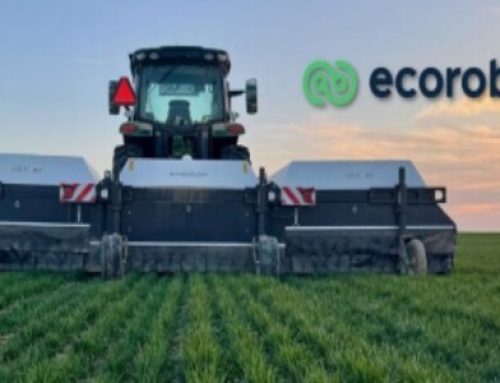Source: CHS Inc. news release
CHS Inc., a leading farmer-owned cooperative and global agribusiness, is announcing plans for a significant expansion and upgrade to its grain terminal in Kindred, North Dakota. The company is seeking to invest in this facility to improve speed and space in a key geography. Ultimately, the facility upgrades would further connect local growers to nearby processing plants and the Pacific Northwest export market.
“Investing in our Kindred grain terminal is just one example of how CHS is strengthening the grain supply chain by connecting local growers to the global marketplace,” said Rick Dusek, CHS executive vice president, ag retail, distribution and transportation. “As a cooperative, we focus on investments on behalf of our owners that enhance their global market access and provide value back to our owners and their communities.”
Upon completion, the facility will have an overall capacity of 5.2 million bushels. This increase in speed and space will be accomplished by replacing existing steel bins with concrete operating space to hold 890,000 bushels. The facility has rail lines that feed into the Red River Valley and Western Railroad Company (RRVW), which is a regional short-line railroad. This rail access links the Kindred grain terminal to a new soybean crush plant and existing ethanol plant in nearby Casselton, North Dakota.
“Adding storage capacity at the Kindred facility, in addition to increasing speed and efficiency, will benefit local farmers throughout the year and especially during peak harvest seasons,” said David Braaten, local grower and CHS Dakota Plains Ag producer board member. “This investment is an example of how our local cooperative brings value to our area farmers and communities.”
The Kindred facility provides energy, grain and agronomy at a centralized hub. The site enhancements are expected to include a new load out and two high-speed receiving dumps to increase efficiency and bring area farmers even more market access to the Pacific Northwest grain corridor and important regional markets.
“The Kindred grain facility is in a highly productive area of North Dakota and our farmer-owners need efficient and effective assets to serve them now and into the future,” said Dennis Novacek, senior director of operations at CHS Dakota Plains Ag, which will be managing the facility as part of its area operations. “Updating grain storage and reducing load times at the facility allows for faster and more efficient service to farmer-owners during harvest and other high-volume seasons.”
Removal of the existing steel bins is expected to begin in late 2024 and construction on the new concrete storage is tentatively slated for 2025. The facility is expected to be complete in later 2026.
“CHS is investing in key assets along strategic grain corridors and in our enterprise supply chain,” Dusek said. “Projects like this one, as well as our recent Drayton, North Dakota, expansion and the new grain elevator coming online soon in Worthing, South Dakota, are helping us build our grain supply chain along the Interstate 29 corridor to more effectively connect to the eastern Dakotas and west-central Minnesota. In addition to our new grain facility in Erskine, Minnesota, we are creating a globally connected grain supply chain with a network of assets that bring value and better service to our farmer-owners.”
About CHS Inc.
CHS Inc. (www.chsinc.com) creates connections to empower agriculture. As a leading global agribusiness and the largest farmer-owned cooperative in the United States, CHS serves customers in 65 countries and employs approximately 10,000 people worldwide. We provide critical crop inputs, market access and risk management services that help farmers feed the world. Our diversified agronomy, grains, foods and energy businesses recorded revenues of approximately $39 billion in fiscal year 2024. CHS is committed to reducing our impact on the planet, finding and developing new solutions in agriculture and energy, and investing in ways to build a better future for our owners, customers, employees and communities.


